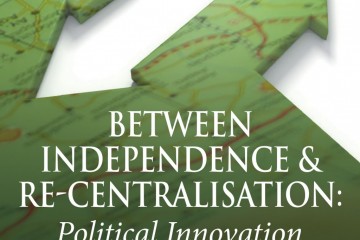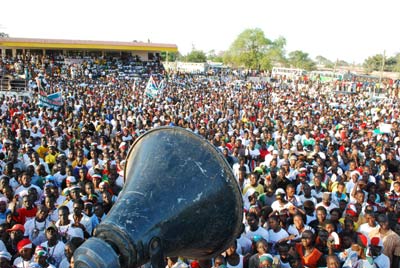
Secession and liberal democracy: the Catalan case
In Spain, the 1978 Constitution was the legal outcome of a political transition to a democracy, following the horrors of civil war and dictatorship. Among other things, it established a territorial model – the so-called “Estado de las Autonomías” (State of Autonomous Communities) – which was in principle designed to satisfy the historical demands for recognition and self-government of, above all, the citizens and institutions of two minority nations: Catalonia and the Basque Country. This territorial model occupies an intermediate position between the classic federal and regional models of comparative politics, but has more regional than federal features.
Yet thirty-six years later, many Catalan and Basque citizens and political and social actors show a deep disappointment regarding the development of this territorial model – in terms of collective rights, political recognition and self-government.
A movement for change
In recent years, support for independence has increased in Catalonia. Different indicators show that pro-independence demands are endorsed by a majority of its citizens, political parties and civil society organizations. This is a new phenomenon. Those in favour of independence had been in the minority throughout the 20th century. Nowadays, however, demands of a pro-autonomy and pro-federalist nature, which until recently had been dominant, have gradually lost public support in favour of demands for self-determination and secession. The following graph shows this recent trend.

The Cambridge Election Podcast
From the University of Cambridge comes ELECTION, a weekly politics podcast; asking the questions that no one else is in the run-up to the British General Election with the most interesting people inside and outside the political arena. Here below is the fifth podcast.

The rise of populism in Southern Africa’s dominant party states
Over the past two decades the countries in southern Africa have generally had ‘dominant party systems’. Such party systems consist of one large ruling party which is dominant, in terms of seats in the national assembly or incumbent advantages, and a number of small opposition parties. The literature on dominant parties (Bogaards, 2004 and Greene, 2007) and competitive authoritarianism (Schedler, 2009 and Levitski and Way, 2010) provide useful insights for understanding the party politics of the region. The dominant party is usually a former liberation movement which fought to end colonialism or white minority rule. Nicholas van de Walle observes that opposition parties in the region lack the financial and organisational ability to compete with the incumbent advantages of ruling parties. As such, they remain small and fragmented. The dominant parties in southern Africa maintain their hold on power through a mix of co-option and coercion and are not unlike their counterparts in other competitive authoritarian states such as Mexico, Argentina and Russia. For example, mass political rallies are held to demonstrate the ruling party’s extensive support base. People are allegedly enticed to rallies with gifts in cash or kind. In addition state media are manipulated to give the ruling party more coverage and draw attention to its achievements and the government attempts to control the media through regulation or intimidation.

ELECTION – The Cambridge Politics Podcast
From the University of Cambridge comes ELECTION, a weekly politics podcast; asking the questions that no one else is in the run-up to the British General Election with the most interesting people inside and outside the political arena.
Can democracy adapt to our strained political system? Who (if anyone) will ‘win’ in 2015? What can the lessons of the past teach us about the future?
Professor David Runciman puts these questions to philosophers, historians, scientists, and political thinkers – with enlightening results – in a weekly podcast series coming from his office in the Department of Politics and International Studies.

Government in Greater Manchester: A mayor for all seasons?
From June, Greater Manchester will get an interim mayor as part of a deal with the Government on regional devolution. But its imposition without a referendum is a fundamental error by the political elite that may well backfire, argues Professor Colin Talbot. ‘Mayors’ seem to have become the default answer of many in the political elite to the problems of local government and governance in the UK, or more specifically England. Linked to the idea of English devolution as an answer to Scottish ‘home rule’ this has become a heady brew. But maybe it’s time to ask some sober questions about this project of ‘Devo Manc’, at least in terms of the proposed system of government for Manchester. My argument is, …

Four options for configuring the British constitution
Inbuilt within the United Kingdom is the potential for instability. It is a multi-nation state, like Belgium, Canada, Spain and – some would say – the European Union. At present, it consists of three nations – Wales, Scotland and England; and a fourth territory, Northern Ireland, the status of which is complicated and controversial. This internal differentiation is not necessarily a weakness. But it has at times been a source of problematic tension. Pressure for more autonomy, or even secession, has come from within some of the national groups incorporated into the UK. Early in the history of the state, during the eighteenth century, Scottish Jacobite rebellions took place. The place of Ireland within the UK has often been a …

The politics of a written constitution for Britain
The first issue concerning a written constitution for Britain is: Where is the demand coming from? Contemporary organised demand for constitutional reform traces back to the late 1970s, yet even before then, isolated intellectuals – ‘a voice crying in the wilderness’ – had tried to make an issue out of a written constitution for Britain that would include a Bill of Rights. The term ‘norm entrepreneur’ is sometimes used in politics and international relations to refer to pioneers who, dissatisfied with the status quo, take action to change it at their own initiative. They may make an impression on the world even if their personal cause ultimately fails. A norm entrepreneur is typically an individual, but may be a collective actor …

Let the people speak! The state of devolution, decentralization and deliberation in UK politics
Democratic pressure is building, cracks and fault-lines are emerging and at some point the British political elite will have to let the people speak about where power should lie and how they should be governed. ‘Speak’ in this sense does not relate to the casting of votes — the General Election will not vent the pressure — but to a deeper form of democracy that facilitates both ‘democratic voice’ and ‘democratic listening’.
In the wake of the Scottish referendum on independence the UK is undergoing a rapid period of constitutional reflection and reform. The Smith Commission has set out a raft of new powers for the Scottish Parliament, the Chancellor of the Exchequer has signed a new devolution agreement with Greater Manchester Combined Authority, the Deputy Prime Minister has signed an agreement with Sheffield City Council, and the Cabinet Committee on Devolved Powers has reported on options for change in Westminster. One critical component of this frenetic period of reform has been the absence of any explicit or managed process for civic engagement even though the Prime Minister’s statement on the 19 September 2014 emphasized that ‘It is also important we have wider civic engagement about how to improve governance in our United Kingdom, including how to empower our great cities. And we will say more about this in the coming days’.
The days and months have passed but no plan for civic engagement has been announced.
In the meantime, calls for a citizen-led constitutional convention have been made with ever increasing regularity and volume.









